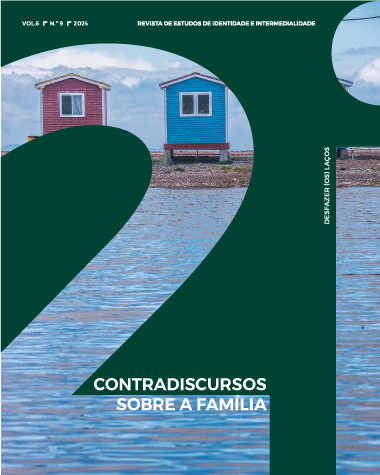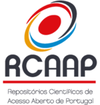The queer effect of matrilineal genealogies in Pedro Almodóvar's 'Todo sobre mi madre' (1999)
DOI:
https://doi.org/10.21814/2i.5589Keywords:
Motherhood Studies, Queer Studies, Spanish FilmAbstract
How can alternative kinship formations begin to challenge heteronormative and patriarchal family structures? Matrilineal genealogies are not subject to the limitations of patriarchal lineages. They do not necessarily rely only on biological connections between family members nor do they reproduce traditional Oedipal or nuclear family structures. The inclusion of substitute mother figures in matrilineal genealogies points to the anti-heteronormative potential of alternative kinships formed through formal or improvised networks of women. These figures queer the limitations of the category mother, questioning the boundaries of the term by operating both within and outside of patriarchal notions of motherhood. Pedro Almodóvar’s 1999 film Todo sobre mi madre (All About My Mother) serves for me as a case study for investigating the matrilineal genealogies that obtain a spontaneous and improvised quality rather than reflect a normative family structure, instead incorporating friends, lovers, and even strangers. The matrifocal solidarity of the film indicates the subversive and utopian power of walking together. This paper begins by considering the idea of queer motherhood and then analyzes how Manuela as the mother without child, Manuela as substitute mother, and Lola as transgender father complicate the notion of family and the concept of mother.
Downloads
References
Acevedo-Muñoz, E. (2004). The body and Spain: Pedro Almodóvar’s All About My Mother.
International journal of phytoremediation, 21(1), 25–38.
https://doi.org/10.1080/10509200490262433
Almodóvar, P. (Writer/Director) & Almodóvar, A. (Producer). (1999). Todo sobre mi madre
[Motion picture]. Culver City: Sony Pictures Classics.
Butler, J. (2006). Gender trouble: Feminism and the subversion of identity. Florence:
Routledge.
Chodorow, N. (1999). The reproduction of mothering: Psychoanalysis and the sociology of
gender. Berkeley: University of California Press.
Gibson, M. (2014). Introduction: Queering motherhood in narrative, theory, and the everyday.
In Queering motherhood: Narrative and theoretical perspectives (pp. 1-23). Bradford: Demeter Press.
Gutiérrez-Albilla, J. D. (2017). Aesthetics, ethics and trauma in the cinema of Pedro
Almodóvar. Edinburgh: Edinburgh University Press.
Hansen, E. T. (2021). A sketch in progress: Introducing the mother without child. In Maternal
theory: The essential readings (pp. 223-249). Bradford: Demeter Press.
Eggert, V. Z. (2014). Authentic monsters and artificial mothers: Maternal Frustration in Pedro
Almodóvar’s All About My Mother. Literature film quarterly, 42(1), 386–397. https://link.gale.com/apps/doc/A364661423/LitRC?u=ucriverside&sid=summon&xid=9e42ddcb
Estés, C. P. (1992). Women who run with the wolves: Myths and stories of the wild woman
archetype. New York: Ballantine Books.
Estrada, L. (2014). ‘La potencia de lo falso’ en Todo sobre mi madre (1999) de Pedro
Almodóvar. Hispanic Research Journal, 15(6), 530–546. https://doi.org/10.1179/1468273714Z.000000000105
Fraiman, S. (2017). Extreme domesticity: A view from the margins. New York: Columbia
University Press.
GQSpain. (2019, December 18). Pedro Almodóvar: mis mejores películas. Youtube.
https://www.youtube.com/watch?v=-Vl9nv_KBmE.
Hirsch, M. (1989). The mother/daughter plot: Narrative, psychoanalysis, feminism.
Bloomington: Indiana University Press.
Irigaray, L. (1993) Sexes and genealogies. New York: Columbia University Press.
James, S. M. (1993). Mothering: A possible Black feminist link to social transformation. In
Theorizing Black feminisms: The visionary pragmatism of Black women (pp. 45-54). London: Routledge.
Maurer Queipo, I. (2011). Cruzando fronteras: Todo sobre mi madre (1999) de Pedro
Almodóvar. Revista de comunicación de la SEECI, Año XV (24), 18–34.
https://doi.org/10.15198/seeci.2011.24.18-34
Morcillo, A. G. (2008). True catholic womanhood: Gender ideology in Franco’s Spain. DeKalb:
Northern Illinois University Press.
Rich, A. (1976). Of woman born: Motherhood as experience and institution (1st ed.). New York:
Norton.
Smith, P. J. (2014). Desire unlimited: The cinema of Pedro Almodóvar. New York: Verso.
Strauss, F. & Almodóvar, P. (2006). Almodóvar on Almodóvar. London: Faber.
Warner, M. (Ed.). (1993). Fear of a queer planet: Queer politics and social theory (1st ed.).
Minneapolis: University of Minnesota Press.
Downloads
Published
Versions
- 2024-06-24 (3)
- 2024-06-24 (2)
- 2024-06-23 (1)
How to Cite
Issue
Section
License
Copyright (c) 2024 McKenna Middleton

This work is licensed under a Creative Commons Attribution-NonCommercial 4.0 International License.


.jpg)










